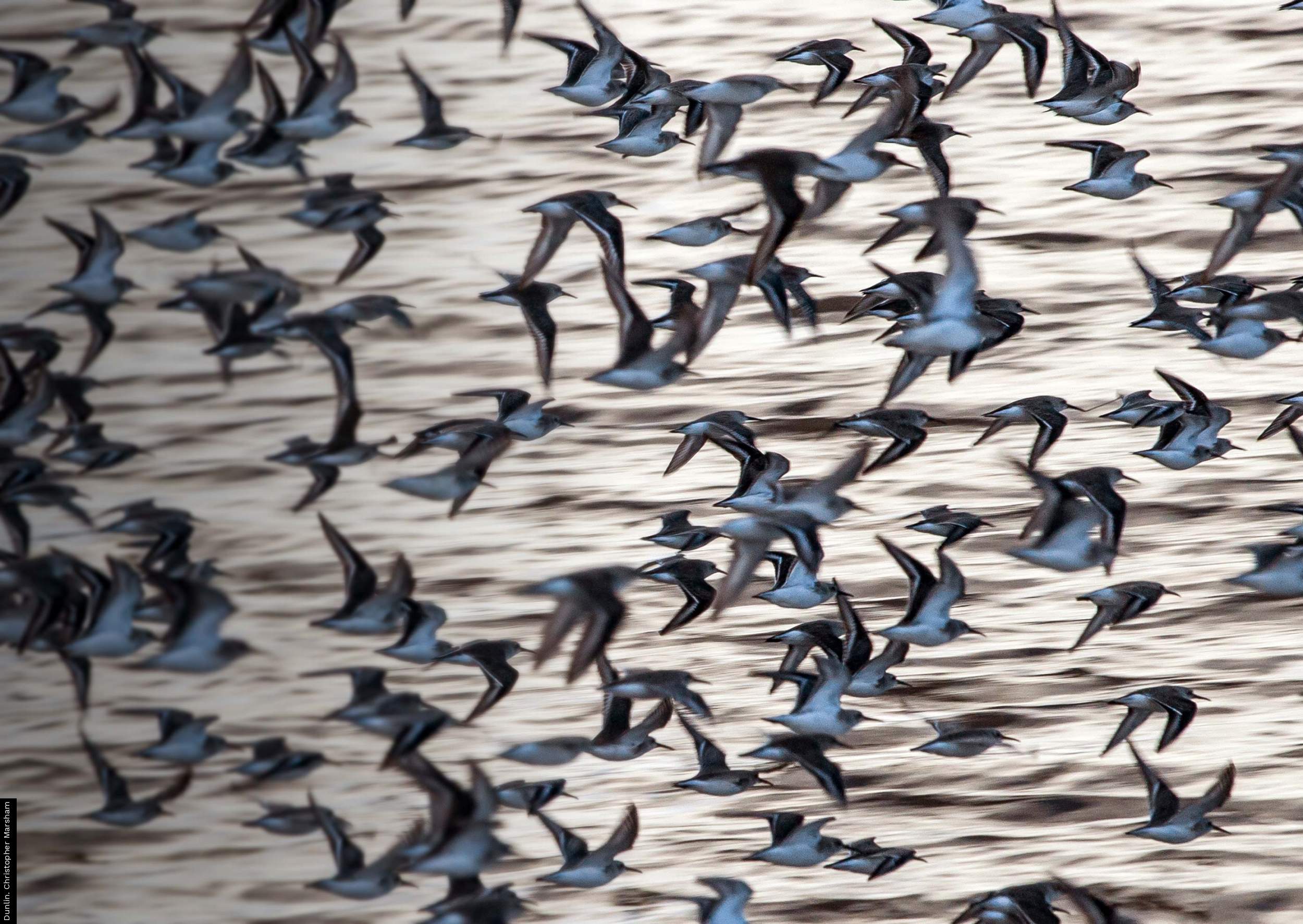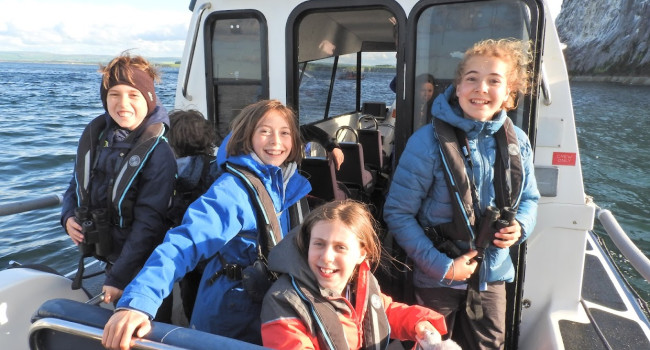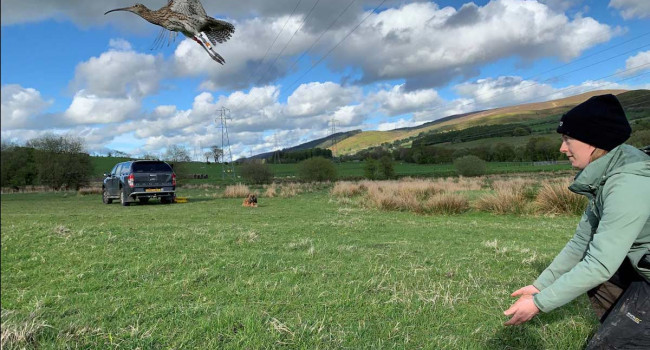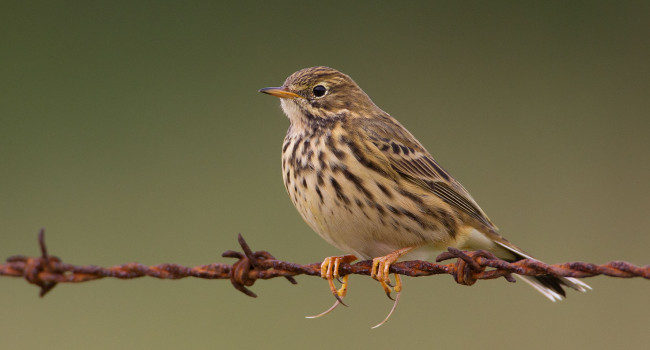Welsh birds fight off the cold
01 Jul 2010 | No. 2010-07-33
Issued by BTO, on behalf of BTO, JNCC and RSPB
in Wales compared to the rest of the UK
Latest results from the Breeding Bird Survey (BBS) show that two of Britain’s smallest birds, each weighing around the same as a ten pence piece, fared better in Wales than the rest of the UK following a cold winter.
Populations of a number of small birds fell across the UK between 2008 and 2009, presumably due to the prolonged freezing temperatures in January and February 2009. In Wales, however, two of Britain’s smallest birds, Long-tailed Tit and Coal Tit, bucked the downward trend experienced in the UK as a whole, increasing by 26% and 36% respectively between 2008 and 2009. The winter of 2008/2009 was drier in Wales than for the rest of the UK, with rainfall 34% lower than the 1971–2000 average, which may have helped these small-bodied birds to survive the winter. Long-tailed Tit and Coal Tit are just two of the 53 species monitored in Wales by the BBS, the main scheme for monitoring Britain’s birds, and a partnership between the British Trust for Ornithology (BTO), the Joint Nature Conservation Committee (JNCC) and the Royal Society for the Protection of Birds (RSPB).
House Sparrows breeding in Wales have also bucked the trend seen in the UK as a whole, increasing by 74% in Wales since the mid 1990s, in contrast to the much-publicised decline (-9%) in the UK overall.
A number of birds have declined more in Wales than the rest of the UK since the BBS began in the mid 1990s. Changes in grassland management could be behind the declines in Starling (-58%) and Rook (-19%) that both prefer feeding on unimproved grassland. Green Woodpecker numbers have declined in Wales by -9% since 1995, in contrast to increases elsewhere in the UK.
Kate Risely, BBS Organiser at the BTO, said, “It is thanks to the huge amount of effort that Welsh volunteer surveyors put in during the breeding season that we are able to detect the annual changes in numbers of birds like Long-tailed Tit and Coal Tit. Without this dedication our knowledge of the breeding birds in Wales would be much poorer.”
Dr Sian Whitehead, Senior Ornithologist at the Countryside Council for Wales, said, “The data gathered from BBS forms a vital part of our evidence base on which to guide conservation action in Wales. We recognise how much the scheme depends on volunteer efforts, and we hope that BTO’s plans to set up a Wales office will come to fruition, so that existing efforts can be further enhanced and developed.”
“By comparing trends in common birds breeding in Wales with those in the rest of the UK, we can begin to assess those polices and activities in Wales that are benefiting birds, while at the same time identifying areas where more management or research is needed,” added Dr Ian Mitchell, Senior Monitoring Ecologist with the JNCC – the UK Government’s adviser on nature conservation and co-funders of the BBS.
Dr Mark Avery, the RSPB’s Conservation Director, said, “We are very worried that government spending cuts will affect the funding of the Breeding Birds Survey but also of conservation measures that would improve the fortunes of many declining species. Cuts to agri-environment funding will mean that farmland bird numbers, as measured by the BBS, will remain at low levels.”
For more information on the Breeding Bird survey in Wales visit, www.bto.org/bbs or telephone 01842 750050.
Notes for Editors
- For a pdf of the full report visit www.bto.org/bbs/results/BBSreport09.pdf
- The Breeding Bird Survey is run by the British Trust for Ornithology (BTO) and is jointly funded by BTO, the Joint Nature Conservation Committee (JNCC) (on behalf of the statutory nature conservation agencies: Council for Nature Conservation and the Countryside, the Countryside Council for Wales, Natural England and Scottish Natural Heritage), and the Royal Society for the Protection of Birds (RSPB).
- The BTO/JNCC/RSPB Breeding Bird Survey (BBS) is a national project aimed at keeping track of changes in the breeding populations of widespread bird species in the UK. The BBS involves over 2,500 participants who now survey more than 3,200 sites across the UK, enabling us to monitor the population changes of over 100 bird species. Knowing to what extent bird populations are increasing or decreasing is fundamental to bird conservation.
- The information provided by the BBS provides a cornerstone for conservation action for birds in the UK. This survey forms an integral part of the Government’s Quality of Life indicators.
- This important survey is carried out by volunteer birdwatchers throughout the UK, who receive no financial reward or expenses for their efforts. We are indebted to them for their tremendous support.
- The BTO is the UK’s leading bird research organisation. Over thirty thousand birdwatchers contribute to the BTO’s surveys. They collect information that forms the basis of conservation action in the UK. The BTO maintains a staff of 100 at its offices in Norfolk and Stirling, who analyse and publicise the results of project work. The BTO’s investigations are funded by government, industry and conservation organisations.
- The Joint Nature Conservation Committee (JNCC) is the statutory adviser to Government on UK and international nature conservation, on behalf of the Council for Nature Conservation and the Countryside, the Countryside Council for Wales, Natural England and Scottish Natural Heritage. Its work contributes to maintaining and enriching biological diversity, conserving geological features and sustaining natural systems. Website: www.jncc.gov.uk
Contact information
Kate Risely (Breeding Bird Survey Organiser)
Office: 01842 750050
Email: bbs [at] bto.org
Paul Stancliffe (BTO Press Officer)
Office: 01842 750050 (9am to 5.30pm)
Mobile: 07845 900559 (anytime)
Email: press [at] bto.org
Grahame Madge (RSPB Press Officer)
Office: 01767 681577 (Office Hours)
Mobile: 07702 196902 (anytime)
Images are available for use alongside this News Release
Please contact images [at] bto.org quoting reference 2010-07-33
The BTO has an ISDN line available for radio interviews
Please contact us to book an interview
Office: 01842 750050






Share this page